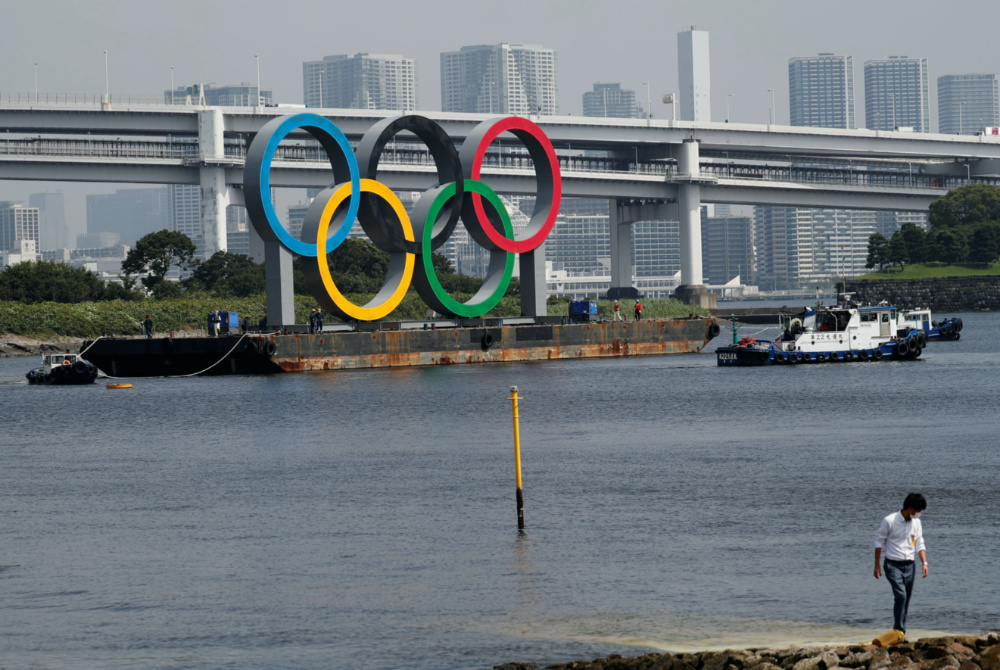Updated: 4.15pm (AEST)
Melbourne, Australia
Reuters
A vast majority of Australian athletes believe messages of personal or political protest should not be delivered in Olympic competition or on the medallists’ podium, a survey conducted by the country’s athletes’ commission said on Friday.
More than 80 per cent of 496 respondents said protesting on the field of play would “detract from the performance or experience of athletes”, according to the survey by the Australian Olympic Committee Athletes’ Commission.

Boats tow the giant Olympic rings, which are being temporarily removed for maintenance, amid the coronavirus disease (COVID-19) outbreak, at the waterfront area at Odaiba Marine Park in Tokyo, Japan, on 6th August. PICTURE: Reuters/Kim Kyung-Hoon
The survey comes amid growing calls on the International Olympic Committee to ease restrictions on protests with other sports organisations allowing athletes to express on-field solidarity with the Black Lives Matter movement in a time of global anti-racism demonstrations following George Floyd’s death in police custody in May.
The issue of Olympic protest carries special resonance in Australia, with track athlete Peter Norman having been part of one of the most symbolic protests in Olympic history, when he stood on the podium with Black American sprinters Tommie Smith and John Carlos in the 1968 Olympics in Mexico City.
Silver medallist Norman wore a badge supporting the “Olympic Project for Human Rights” while Smith and Carlos raised black-gloved fists and bowed their heads during the US national anthem, a potent gesture in the civil rights era.
Rule 50 of the Olympic Charter bans any form of political protest during Games.
The Australian survey was prompted by an IOC Athletes’ Commission initiative to explore how athletes can “support principles enshrined in the Olympic Charter”.
In domestic sport competitions, including rugby, soccer and Australian Rules football, Australian players have taken a knee on field in recent months to express Black Lives Matter solidarity.
In the AOC survey, nearly 41 per cent of athletes who responded said the Olympics were “not a place for athletes to publicly express their views”. Some 40 per cent believed in self-expression “depending on the circumstances”, and 19 per cent believed in self-expression “in any circumstances”.
“Athletes now in the 2000s and beyond want to express themselves,” AOC Athletes’ Commission chairman Steve Hooker said in a video call with reporters on Friday. “The way they want to express themselves is really varied, though.”
“It should be more read that the majority of athletes…their passion is their sport and their focus is on sport” Hooker said. “And they want to go to the Olympic Games and focus on that. That doesn’t mean that other people, other members of the team, don’t feel differently.”
After his 1968 protest, sprinter Norman was sanctioned by Australian Olympic officials and missed out on selection for the following Games.
The AOC denied Norman was blacklisted for his part in the protest but in 2012, Australian lawmakers issued a posthumous apology to Norman “for the treatment he received…and the failure to fully recognise his inspirational role”.





